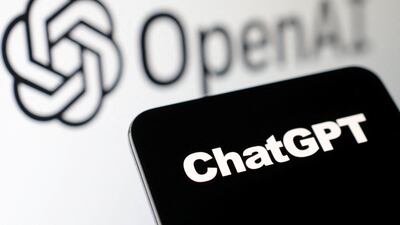A couple of months ago, nobody (including myself) seemed to have heard of ChatGPT, but it is now a hot topic that seems to be reigniting the debate on the positives and negatives of artificial intelligence.
And with that, what it means for the job market.
Let’s start with what is ChatGPT? Essentially, it is a form of chat bot developed by OpenAI and unveiled last November.
In less than a month, it had more than a million users. By January, that number leapt to more than 100 million, making it the fastest-growing user application in such a short time frame.
What does it do? In the same way that Google can answer questions, ChatGPT can write music and computer programs, draw pictures, answer tests and write essays, among other things.
One thing I have noticed in the very little time I have used ChatGPT is the complex and creative way in which it can deliver content with very little information.
So, this begs the question — will this technology remove jobs? The answer is probably, but much in the same way as combine harvesters removed the need for cutting grain by hand, or ATMs did away with bank tellers or parking machines negated the use of parking attendants.
It won’t remove jobs altogether and that is what is key.
Technology has continued to change and improve people’s lives at lightning speed.
As a recruiter, I still like to write my own job adverts, but I may now use ChatGPT for support to do this. Why not, if it helps make my working life easier?
I do not see a real threat to jobs from AI — instead, people should embrace technology wherever it can enhance their lives.
The need for trained computer programmers, data scientists, software engineers and the whole IT ecosystem around AI is only going to grow.
So, it is more important for the younger generation to arm themselves with technology skills — and it looks like ChatGPT will enable them to do that.
We need to remember that every so often, a new type of AI tech will come into the spotlight, with some championing the opportunity that it brings and others raising concerns — particularly in the form of computers taking the jobs of humans.
The reality is that AI has been around since the 1950s and is here to stay.
Some of the earliest uses of the technology were in video games, where people were able to “play against the computer”.
In 1997, Garry Kasparov became the first grandmaster to be beaten by AI in the form of IBM’s chess-playing computer Deep Blue.
Although not very happy at the time, 25 years later, Kasparov has made peace with the loss and sees the positives in human-machine collaboration.
Millions around the world have made use of AI and not even realised it, such as when ATM machines began reading handwritten cheques in the 1980s, removing the need for people to visit a branch.
This is a good example of AI improving business efficiency and removing the need for humans in mundane tasks.
This technology is here to stay and will keep advancing.
Microsoft recently announced a $10 billion investment in ChatGPT maker OpenAI and Google is developing a rival called Bard.
Both companies announced thousands of redundancies globally, but employee numbers have grown significantly overall in recent years.
There have already been concerns raised about students cheating with their homework, as well as from politicians and journalists who see the technology as a threat to the manipulation of facts.
But these concerns have been around ever since the internet became widely accessible and the world took up social media.
As a tech headhunter for more than 20 years, I am confident that AI will not take my job away.
Having the right tools and algorithms in the software that I use daily will help me to carry out my tasks more efficiently.
I also do not miss using a fax machine or a Rolodex (if you can remember those), but there is no replacement for human intuition or real-life experience.
Ultimately, AI is an enabler, not a threat — and I am interested to see how this enhances our day-to-day lives and the jobs that we do in the coming months and years.
John Armstrong is founder and managing director of recruitment agency JCA Associates.

